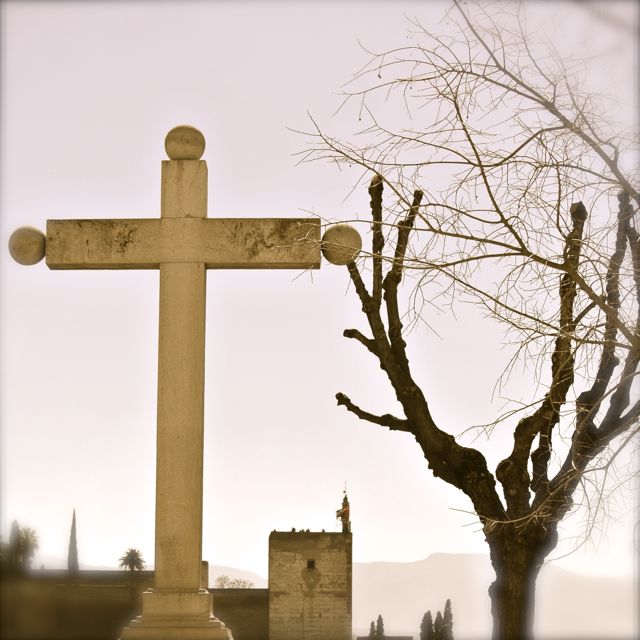All changes, event the most longed for, have their melancholy; for what we leave behind is a part of ourselves. – Anatole France
The spring I had longed for brought with it a veil of melancholy and new loss. Not only does it mark the first anniversary of my dear friend Karen’s death, but I lost another wonderful friend suddenly on March 17th. St. Patrick’s Day, ironically, was Karen’s favorite “holiday.”
“Don’t be dismayed at good-byes. A farewell is necessary before you can meet again. And meeting again, after moments or lifetime, is certain for those who are friends.” – Richard Bach, “Illusions: The Adventures of a Reluctant Messiah”
What if you don’t get a chance to say good-bye? I said good-bye to Karen because I knew the end was near, but I expected to see Tom and his wife Sarah again. In a matter of minutes, life changed. It’s hard to know what to say to someone who’s just lost their best friend, or husband, or daughter, or sister. It’s also hard to know how to comfort someone who’s just experienced loss.
“I’m sorry,” I said, barely choking out the words and hugged my friend Sarah at the funeral home. It was the best I could do. After that I was lost.
“There comes a time in any true professional’s career, in any good relationship, when it is not about what you know or what you do, it is simply about who you are.” – Daniel M. Meyers, President, Al Sigl Community of Agencies
Dan’s beautiful tribute to Karen last April continues to resonate with me. Karen made a difference with her quiet caring way and generous spirit. She made others care because of who she was; an all-around beautiful person who gave more than she took and died too young.
Like Karen, Tom made an impact on friends, family and colleagues. I remembered Tom’s stories, the firm tone of his voice, the ill-concealed glee in reporting on the misadventures of a mutual friend (both on and off the golf course). I sat with friends and talked about the good times we shared with Tom and captured our stories in a letter. I wrote the letter and gave it to Sarah after the funeral.
I didn’t attend the funeral, but I sent a nice letter saying I approved of it. – Mark Twain
I often turn to books to help me cope with something I’m struggling with. Books on grief, grieving, loss, death, inspiration, fiction, poetry, short stories, the Bible, and many, many more. Books comfort me, and talking about them helps me to understand how connected we are in this world. From time to time someone shares with me an online story or blog post. My world opens up a bit more, deepening my understanding. Ride in a Good Direction is such a blog. It’s owner, Brett Hoefen, sadly is no longer with us, but his family leaves it on the web for curious souls to find.
Tears are the silent language of grief. – Voltaire
“The way to get through grief is to acknowledge it, let yourself experience it, allow yourself time and permission to accept it and incorporate the experience into your life,” says Janice Putrino, LMSW, Certified Journal Therapist, and founder and director of Writing for Wellness. My friend Janice’s mission is to teach individuals and groups how to use therapeutic writing to achieve wellness of body, mind and spirit. And she’s pretty darn good at it.
Writing through grief can be helpful for many people. There is no set time frame for each stage, yet grief is a process with three stages: shock, acceptance, and resolution. With time and support you can progress through these stages and incorporate the experience into your life. Some journaling techniques include:
- Springboards – Refer to a list of questions to help you get started writing such as: How has loss changed you? How do you feel about those changes?
- Unsent letter – Write a letter to a person that won’t be sent, but openly expresses your thoughts and feelings
- Dialogue – Write both parts of a conversation you might have between you and your loved one
- Captured moment – Describe in sensory detail a time in your life when you experienced great joy or despair
- One year from today – What might your life look like one year from today?
Writing is not for everyone, says Janice, but “it’s important to find ways to release your emotions and deal with your stress. How you do this will positively impact your physical, mental and emotional wellness or wellbeing.”
I believe in the power of writing and journaling. But I also believe in the power of whacking a tennis ball, taking long walks, practicing yoga, laughing, talking, and celebrating. Celebrating the lives of people who meant so much to us in life is important, but doesn’t make the pain of losing them any easier.
After Karen’s funeral mass, friends and family gathered at her favorite Irish pub Mulconry’s in Fairport, NY and raised a glass in her honor. After Tom’s funeral mass we had lunch at a country club in Dansville, NY. In both cases, it felt like we were celebrating how well they lived their lives. Collectively and separately, we remembered our friendships, good times, plenty of stories, and all the little celebrations we shared; forever our treasures.
Sometimes it’s the simplest of words or acts that mean the most.
If you’re looking for something to say to someone who recently experienced loss, or is grieving, say something from your heart. I learned that it doesn’t have to be much more than, “I’m sorry.”
What helps you grieve? What comforted you in your grief?
Thanks for reading. If you like this post, please feel free to share it with your friends or send me a comment. You can also post a comment on my blog or Facebook.


